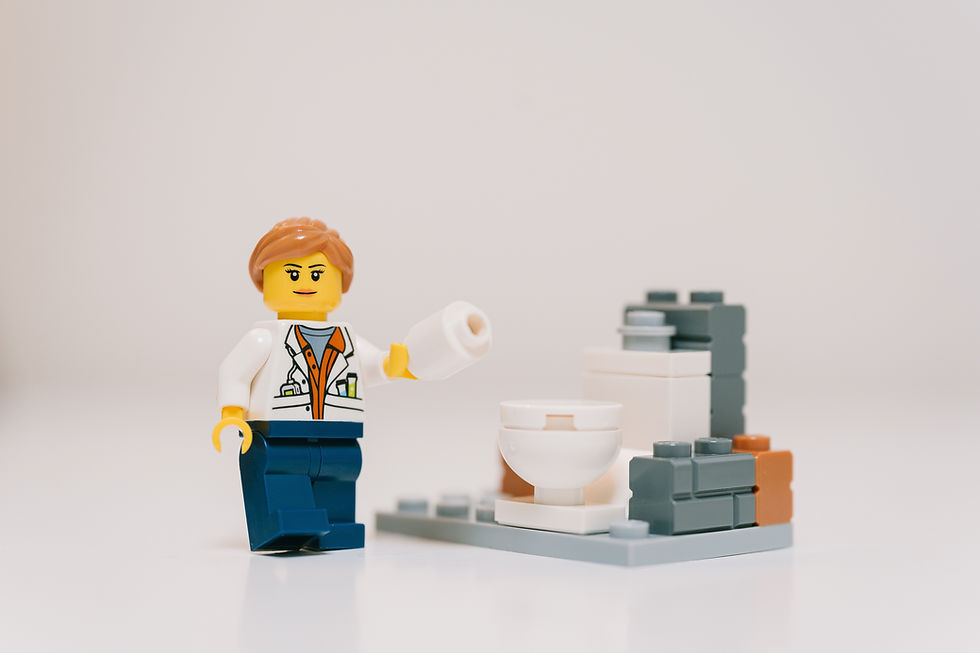A Question of Chloride (and a Little Hope)
- Florence DEMOURANT
- 2 juin 2025
- 3 min de lecture
Researchers from INSERM have shown that abnormally high levels of chloride in the brain are responsible for certain cases of autism (though not all). They have pinpointed birth as a key moment: a time when brain chloride levels, which are supposed to drop, fail to do so — potentially leading to the later expression of autistic traits.
The Discovery
For the first time, researchers managed to record the activity of embryonic neurons and neurons just after birth to study changes in chloride levels. These recordings revealed abnormally high chloride concentrations in both young and adult neurons in animal models of autism. The neurotransmitter GABA, which normally inhibits neuronal activity, instead seemed to excite these neurons — leading to persistent abnormal electrical activity in the adult brain.
What’s particularly striking is the absence of the usual drop in chloride levels that occurs at birth in control animals. In the autism models, neuronal chloride levels remained unchanged before and after birth. This persistence was linked to a malfunction of a chloride transporter — one that normally expels chloride from the cell. As a result, a crucial neurobiological feature of birth was completely absent in these animal models.
The Diuretic That Changed Everything
The researchers went a step further: they gave a diuretic treatment to the pregnant mothers (in both animal models) shortly before birth and continued for 24 hours. Their aim was to see whether this could restore normal brain inhibition in the offspring.
The result? Just one single treatment at birth was enough to reduce chloride levels in the neurons, and this effect lasted several weeks. According to the team, this prenatal treatment restored nearly normal brain activity and corrected “autistic-like” behaviours in the adult animals.
This discovery is especially meaningful because it suggests that the chloride imbalance in neurons may be reversible — at least in the animal models studied. The prenatal diuretic restored chloride balance and, with it, normal brain inhibition. This had a positive impact on brain development, resulting in more typical neural activity and a correction of behaviours linked to autism.
Oxytocin — the Birth Hormone at the Heart of the Research
The role of oxytocin, the hormone involved in triggering labour, was also explored. Back in 2006, the same research team had already shown that oxytocin has many beneficial effects on the newborn’s brain, including protective effects during delivery complications and even pain-relieving properties. In this context, oxytocin acts similarly to a diuretic by reducing chloride levels inside cells.
In the present study, the team tested the long-term impact of blocking oxytocin’s actions before birth. They injected a substance that inhibits oxytocin signals into pregnant mice. When they assessed the offspring, they found it recreated the full autistic syndrome — both electrically and behaviourally — mirroring what was observed in the autism models.This suggests that natural oxytocin activity, just like that of a diuretic, is crucial during this key perinatal phase, and may help regulate the emergence of autistic traits by controlling chloride levels inside neurons.
What This Means for You
Yes, your birth was a long time ago — and if this model turns out to be accurate, there’s little that can be done retroactively. BUT the INSERM research also shows that chloride levels in the brain can fluctuate in adulthood. This makes it entirely plausible that certain lifestyle habits could help regulate chloride levels and ease some aspects of autism.
Start with hydration
The human body is made up mostly of water — and the brain even more so, with between 73% and 90% water content.The problem? Many autistic individuals experience mild dehydration almost daily.
The result? Poor water renewal, higher chloride concentrations in the brain, and heightened autistic-related challenges.Drinking well doesn’t mean drinking excessively, nor blindly following the “1.5L per day” rule.The ideal amount of water depends on your body weight. Here’s a helpful guide showing the number of 250ml glasses needed based on your weight:

And eat well, too
No diet can “cure” autism. But including certain foods — even if your eating is selective — may help ease specific difficulties.

What to look for? Melon, watermelon, lemon, celery, cucumber, green teas or herbal infusions — all naturally diuretic foods, to be enjoyed in moderation.
No food should be consumed in excess, and this is especially true when managing neurodivergent needs. So, incorporate small amounts with care and balance — and always listen to your body.




Commentaires